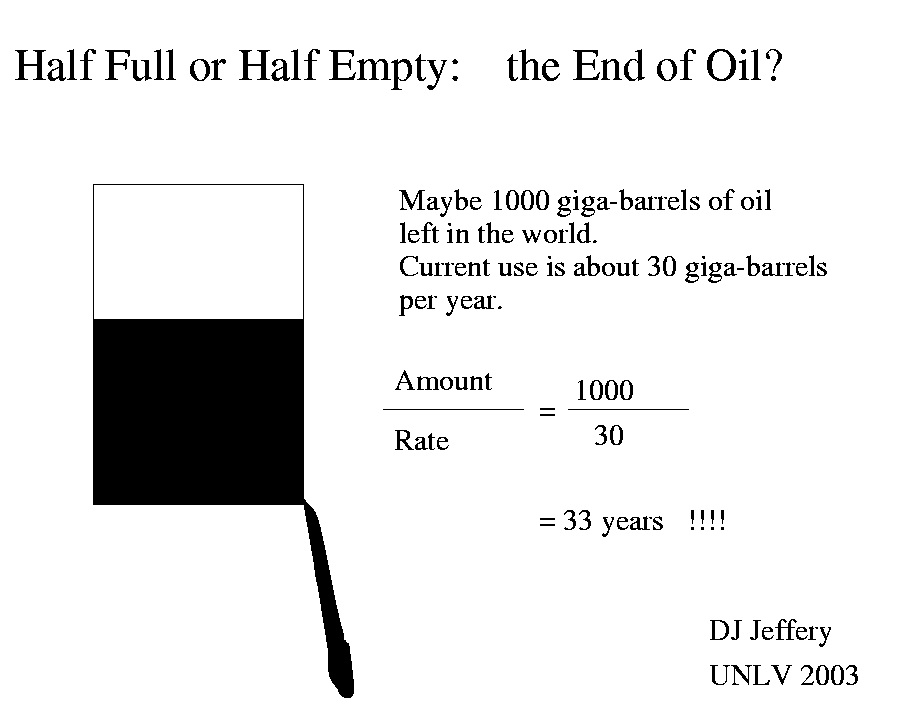
The values used in the figure are out-of-date since they come from 2003 and may NOT have been too accurate even then. But the R/P ratio is of order decades in any case.
The R/P Ratio for Oil:
For a non-astronomical example---a
real R/P ratio
example---the
proven reserves
of oil (AKA petroleum)
(which is that part of oil resources thought to
be economically extractable:
Wikipedia: Mineral Resources)
is circa 2020
of order 1800 Gbl (i.e., 1800 billion barrels or gigabarrels:
see Wikipedia:
List of Countries by Proven Oil Reserves)
and
the world circa 2020 uses about 30 Gbl/year
(see Wikipedia:
List of Countries by Proven Oil Reserves).
So
R/P ratio is given by
t = R/P ≅ 1800 Gbl/(30 Gbl/year) = 60 years .
If used numbers are treated as hard, then there are
∼ 60 years before all the
oil in the world is gone.
But the numbers are NOT hard.
Of course, things are NOT as simple as the calculated
R/P ratio value suggests:
Maybe we will NOT
burn the last drop of oil and oil-like fluids,
but move to a
renewable-energy
economy sooner.
Credit/Permission: ©
David Jeffery,
2003 / Own work.
Image link: Itself.
Local file: local link: oil_end.html.
File: Energy in Society file:
oil_end.html.